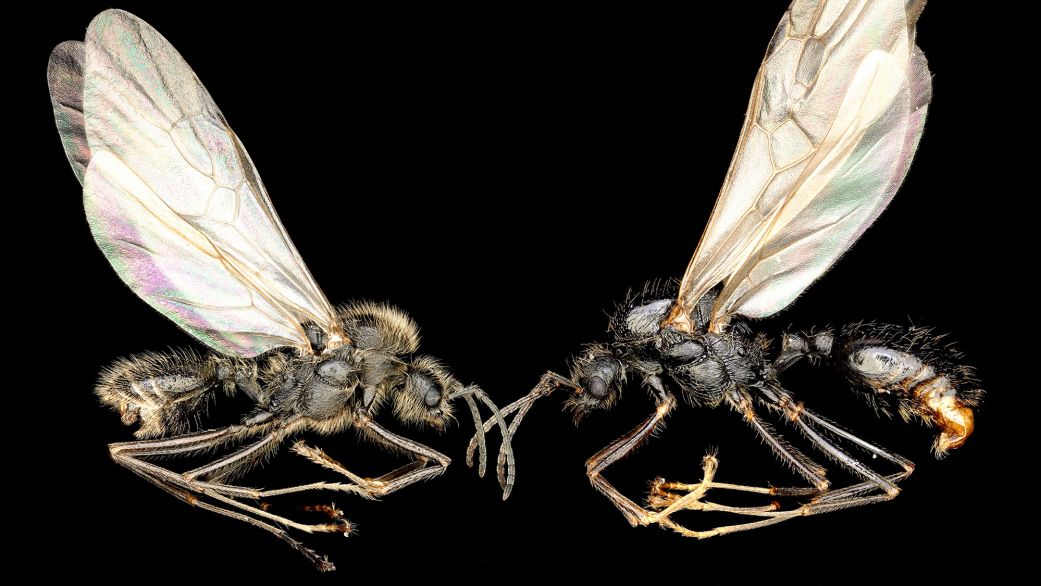Context:
A recent study published in the journal Nature has found that the queens of the Mediterranean harvester ant species, Messor ibericus, can produce male offspring of a different species, Messor structor.
Key Findings
- Messor ibericus workers are hybrid, with about half of their DNA derived from Messor structor.
- Queens use stored Messor structor sperm to clone genetic material and produce males of a different species.
- This unique reproductive strategy is termed xenoparous, meaning "giving birth to a foreign species."
- Xenoparity allows Messor ibericus colonies to survive even in regions without Messor structor, offering evolutionary advantage.

Implications
The discovery of xenoparity in Messor ibericus challenges the classical definition of species reproduction, where parents produce offspring of their own kind.
- It provides evidence of evolutionary adaptation through sperm parasitism or mutualism, where M. ibericus relies on the sperm of M. structor to produce essential hybrid worker ants.
- This adaptation allows the species to survive in isolated areas without the continuous presence of M. structor males.
- It also offers insights into complex reproductive systems and interspecies genetic interactions, making it a subject of high interest in evolutionary biology, genetics, and species co-dependence.
About Messor ibericus:
Messor ibericus, commonly known as the Iberian harvester ant, is a species of harvester ant found throughout Europe, particularly in the Iberian Peninsula. These ants are well adapted to their environment and play a crucial role in their ecosystems.
Key Characteristics
M. ibericus ants are reddish-brown in color, with workers and queens measuring 4-9 mm and 9-10 mm in length, respectively. They have relatively small eyes.
· Males of this species can be distinguished from males of M. structor by the presence of hair, as M. structor males are hairless.
· M. ibericus ants prefer open, dry areas such as scrub or grasslands.
· They feed on a variety of seeds, which they collect and store in their nests.
Behavior and Ecology
M. ibericus colonies are typically organized with a queen, workers, and males. The queen lays eggs, while workers perform various tasks such as foraging, nest maintenance, and caring for young.
· These ants are known for their ability to collect and store seeds, which are an essential food source for the colony.
Conclusion:
The study's findings have significant implications for the field of biology, particularly in the areas of genetics, evolutionary biology, and reproductive biology. Further research can further aid in increasing the understanding the cellular mechanisms behind this phenomenon and its implications for our understanding of evolution and genetics.






